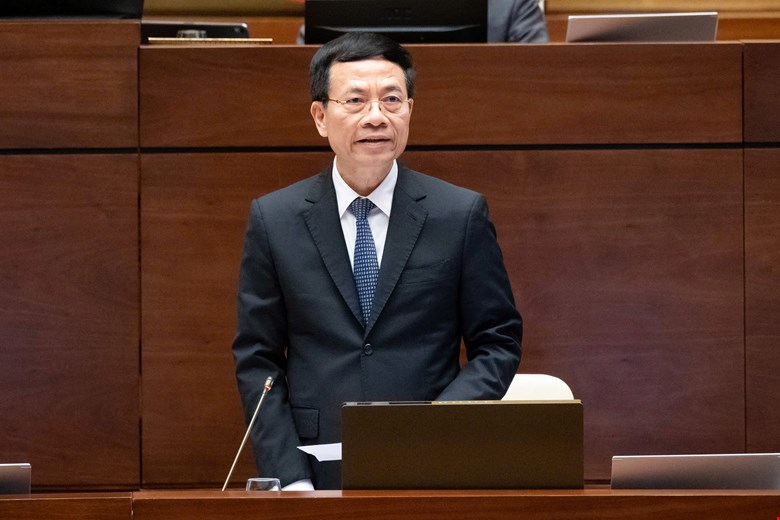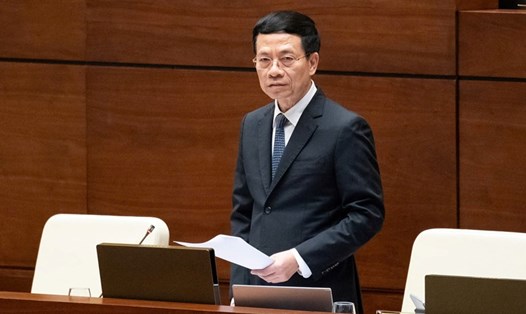At the question-and-answer session with Minister of Information and Communications Nguyen Manh Hung on the morning of November 12, National Assembly delegate Pham Thi Kieu (Dak Nong delegation) highly appreciated the measures taken by the authorities and network operators so that no people or customers are left behind when 2G is turned off.
However, according to the delegate, the quality of telecommunications infrastructure, especially in remote areas, ethnic minority areas, including Dak Nong province, still has many limitations. Many areas still do not have access to 4G waves.

Delegates asked the Minister to provide more information on short-term plans and long-term strategies for this issue, especially comprehensive solutions to respond to emergency situations when telecommunications infrastructure is severely damaged, typically after the recent storm No. 3.
Delegates commented that Vietnam is one of the countries vulnerable to climate change, and extreme weather events can occur frequently.
Answering this question, the Minister of Information and Communications said that when 2G is turned off, the question is who will give people 4G devices when they are using 2G devices?
According to the minister, currently, under the direction of the Ministry of Information and Communications, the network operators must compensate and give new technology devices to the people.
The Minister of Information said that in countries, when the old 2G technology is used by less than 2% of the population, the country decides to stop using that technology and the network operators must support the remaining 2% of the population.
“Because we announced early and did good communication, by the time the 2G network was stopped (October 15), there were only 0.2% of 2G users left, equivalent to about 200,000 2G devices. The network operators were very lenient in compensating people with devices,” said the minister.
The Minister affirmed that 3G and 4G technology coverage is equivalent to 2G technology; at the same time, there is a policy to "compensate" areas where the signal is "concave".
Regarding the issue of solidifying information and communication infrastructure, the minister said that in the past, due to many storms and floods in the Central region, the Ministry of Information and Communications focused on directing solidification in the Central region.
Currently, due to experience, we will quickly solidify infrastructure in the North to prevent natural disasters, storms and floods...











